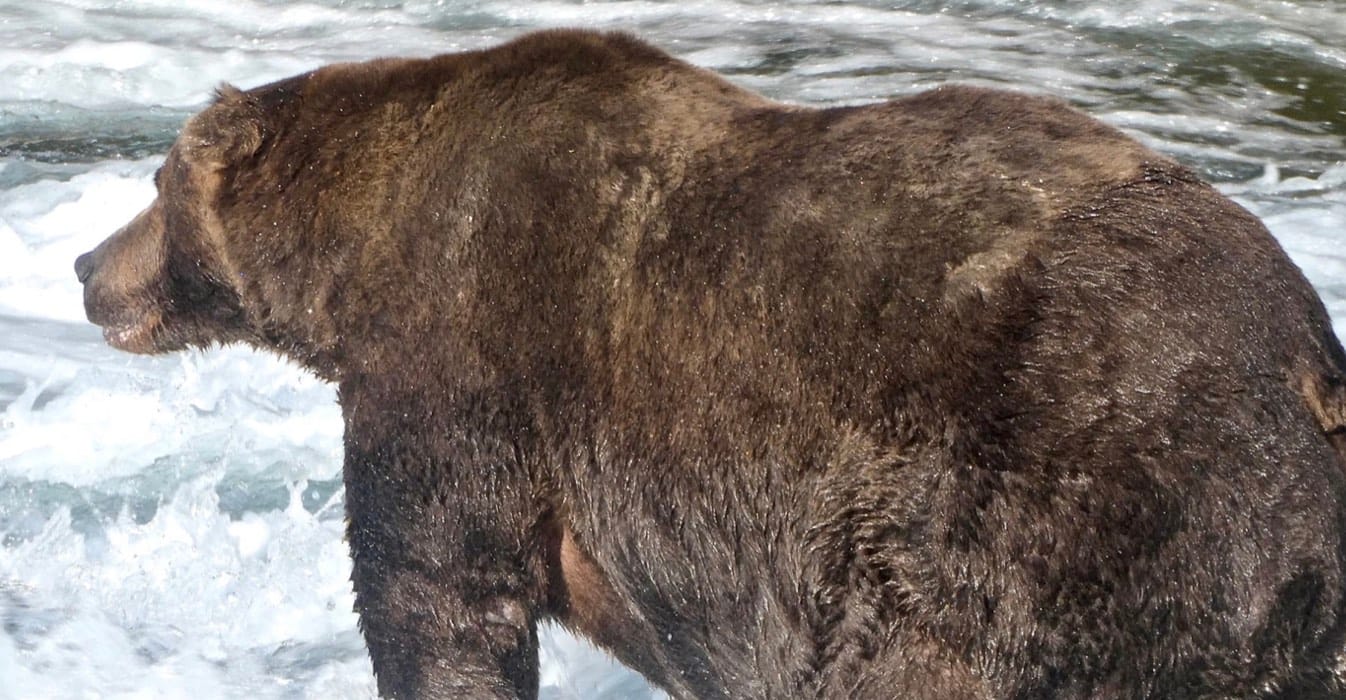Fat Bear Week: It's Time to Weigh in on Katmai National Park's Biggest Bear

As described below, the amount of food – in the form of migrating salmon – available to Alaska’s coastal grizzlies is amazing, as is the size many reach after a season spent gorging on live and scavenged fish.
NOTE: this article was originally published to CNN.com on September 29, 2021. It was written by Marnie Hunter.
Finally, it’s Fat Bear Week — a most welcome week of healthy competition among brown bears.
Alaska’s Katmai National Park and Preserve calls it “a celebration of success,” a March Madness style tournament, complete with a bracket, where you can vote on the heftiest brown bear in the bunch.
The bears are getting ready to retire to their dens for the winter, without food or drink until spring. Their fat reserves sustain them as their body weight dwindles by up to a third.
“For bears, fat equals survival,” says Katmai’s website.
Among this year’s contenders: Chunk, one of the most dominant bears on Brooks River who exhibits some “enigmatic” behavior, and Holly, a medium-large adult female who was 2019’s Fat Bear Week champion.
Voting takes place over several days on explore.org’s website. You can also watch bears every day via LiveCam on the Brooks River in Katmai.
The contest dates back to 2014’s Fat Bear Tuesday, according to the National Park Service, and has plumped up to an event with 640,000 votes cast in 2020, a year that cried out for fat bear fun.
There’s not much to see bear-wise in the winter, but from June to September, visitors gather in Katmai to see brown bears feed on the area’s abundant salmon.
A dominant adult male might catch and eat more than 30 fish a day, and by the end of the fall, adult males can weigh over 1,000 pounds (454 kilograms).
About 2,200 brown bears live in the park.
The National Park Service says the region where the park is located is “home to more brown bears than people and the largest, healthiest runs of sockeye salmon left on the planet.”
Last year’s Fat Bear Week winner, Bear 747 (pictured above), is competing again this year, and he may be the bear to beat. In September 2020, he weighed an estimated 1,400 pounds (636 kilograms), according to explore.org, and he’s at least as big this year.
Fat Bear Week starts on Wednesday, September 29, and concludes on Fat Bear Tuesday, October 5.
